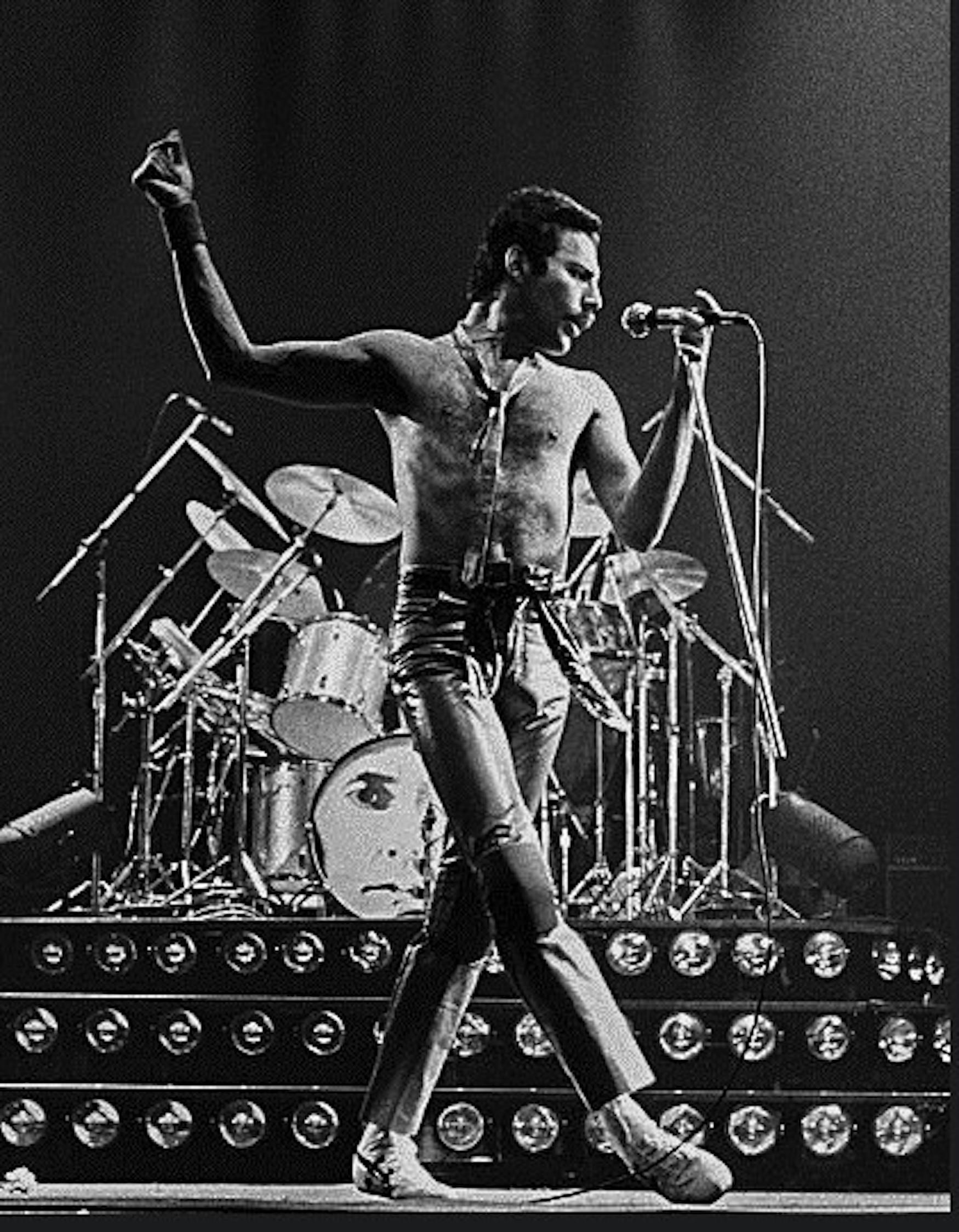‘Queen’ biopic exceeds expectations
“Bohemian Rhapsody” is a film that celebrates Queen’s lead singer, Freddie Mercury, and his personal evolution through the music and the cultural impact he made with Queen. It is easy to depict Mercury’s larger-than-life stage persona, but director Bryan Singer went for more of a personal-tribute approach. At the film’s heart is the relationship between Freddie Mercury (Rami Malek) and his longtime best friend Mary Austin (Lucy Boynton), a relationship which encompasses Mercury’s love of music and his search for his own identity. It was Austin who gave Mercury the first opportunity to explore feminine clothing, supporting his genderbent stage persona. Austin and Mercury were engaged until Mercury accepted that although she was the “love of his life,” Freddie yearned for more. Freddie Mercury, much like Oscar Wilde, was a proto-pansexual. He never came out publicly as “queer” but lived a lifestyle unencumbered by heterosexual norms.
As the film charts Mercury’s life, it makes a point of showing the adversity Freddie had to go through to become one of the most powerful and prolific musical artists of all time. Freddie Mercury, born Farrokh Bulsara in Zanzibar, was of Parsi descent and consequently had complicated feelings about how he would be perceived when he moved with his family to London at the age of 17. In one scene, a record producer makes fun of the “nonsense words” in the song “Bohemian Rhapsody.” Freddie repeats one of these words to himself, “Bismillah,” an Arabic word meaning “in the name of God.” In this touching moment we see that even though Freddie has separated himself from his Arabic birth name, he still carries his culture with him in his music.
Singer takes liberties with chronological accuracy for the sake of the narrative structure and dramatic tension. This liberty is evident in Mercury’s iconic shift from his feminine glam-rock long hair to his short hair and mustache, which denote his acceptance of his pansexuality — “I’m doing everything with everybody, darling.” As a result of these liberties, certain songs that were released before this shift are depicted in the film as having been released after. Still, the tool is used effectively and ultimately strengthens the film’s narrative.
The style of the band’s studio recording sessions and live performance scenes capture all the flair and Herculean power of the real Queen. Much of the singing in the movie is actually from archival recordings of Freddie’s real voice from Queen’s studio and live performances with supplements from Rami Malek and Marc Martel, a singer whose vocal footprint is almost indistinguishable from Mercury’s.
The road to getting “Bohemian Rhapsody” to the big screen has been a long and difficult one. Sacha Baron Cohen, who was originally cast as Mercury, wanted an “R-rated dive into Freddie’s personal life” but was ultimately removed from the project because of these creative differences. However, Malek is fittingly mercurial. His layered performance balances Freddie’s onstage rocker with his sweet, gentle offstage demeanor. Gwilym Lee (Brian May), Ben Hardy (Roger Taylor) and Joseph Mazzello (John Deacon) play the rest of Queen as a delightful band of misfits and jokers who, along with Mercury, go on to conquer the “world of music.” Boynton as Mary Austin gives a genuine performance which elicits heartbreaking pathos.
“Bohemian Rhapsody” pays tribute to the man and musician that Freddie Mercury was, rather than focusing on the tragedy that befell him during his struggle with AIDS. The film ends after Queen’s famous performance at Live Aid, the 1985 benefit concert for starving children in Africa. In the movie, Mercury reveals to the band that he has AIDS in a rehearsal for the concert. In reality, Freddie didn’t die until 1991 and he did not reveal he had AIDS until the day before he died. In the film, Freddie says: “I will not be their AIDS poster child. Don’t you waste a second of unnecessary tears on me when you could be using it to make music.” “Bohemian Rhapsody” carries on this spirit. It forgoes the moments when tears could be shed, so that the music and joy of Freddie Mercury and Queen can take center stage.



Please note All comments are eligible for publication in The Justice.